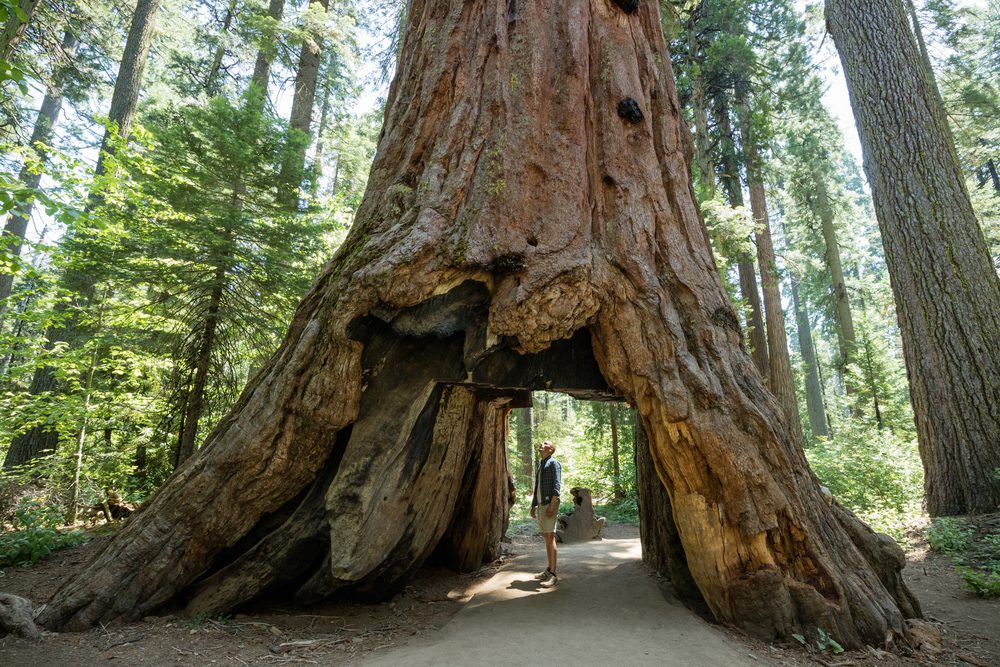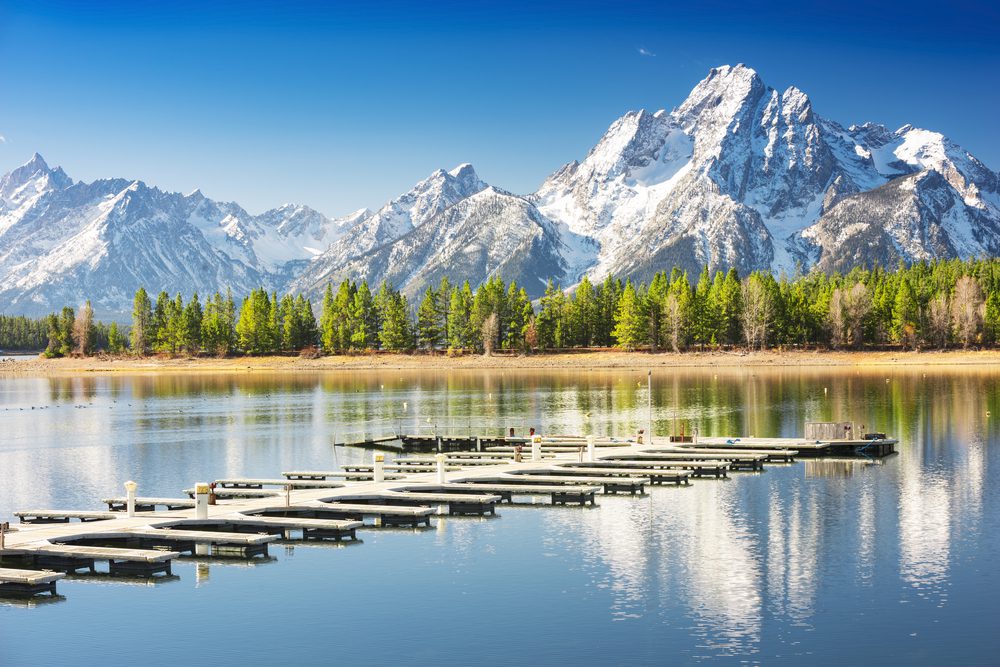Did You Know About The National Park Passes?
The National Park Pass is a card that’s available to all US citizens and permanent residents at least 62 years old. It gives you access to many recreation areas managed by six federal agencies, including National Parks.
It even provides the pass owner a discount on some amenity fees, like camping. As of 2017, a lifetime Senior Pass costs $80. An annual pass is $20. Annual passes cover two people. The downside of yearly passes is that they don’t cover expanded amenity fees.
If you have an older version: the Golden Age Passports, you should know that they are valid for a lifetime and equivalent to the new Senior Pass. Plastic Golden Age Passports are valid for a lifetime.
But, if you want the new National Park Pass, you may purchase one with proof of ID. Paper Golden Age Passports can also be exchanged for the new Senior Passes with proof of identification.
So let’s get into the specifics: Why should YOU get this pass? Continue reading to find out!

How Do You Get A National Park Pass?
As we’ve mentioned, you must have already turned 62 and be a US citizen or permanent resident to be able to get a pass. You can get the National Park Pass from a participating federal recreation site or office.
But passes can also be purchased by mail or online at participating agencies like Fish and Wildlife Service, National Park Service, USDA Forest Service, Bureau of Land Management, Bureau of Reclamation, or US Army Corps of Engineers.
You can buy a pass online by uploading documentation issued by an authorized US agency that proves US citizenship or permanent residence and your birthdate. A driver’s license, passport, US birth certificate, green card, or state-issued ID would be acceptable.
You can also buy a pass by mail and include photocopies of proof showing your citizenship, permanent residence, and birthdate. If your National Park Pass doesn’t arrive before your planned trip, you can purchase a pass when you arrive at your location.
After your pass comes in the mail, return it for a refund. Just make sure you don’t sign it before returning it.
Where Can You Use The National Park Pass?
The Bureau of Reclamation, Bureau of Land Management, Fish and Wildlife Service, Forest Service, National Park Service, and also the US Army Corps of Engineers all honor the National Park Pass at sites where entrance or any type of standard amenity fees are being charged.
But besides that, even the Tennessee Valley Authority might honor the Senior Pass. We recommend that visitors who wish to take advantage of this pass contact the site they plan on visiting, and they should find out as much as they can about pass acceptance before their arrival.
Benefits Of The Lifetime National Park Pass
Getting an annual pass may be cheaper, but you may want to reconsider getting the lifetime version. The lifetime National Park Pass will give you many benefits that will save all seniors more money while visiting our nation’s beautiful national parks of their choice.
Let’s look at some examples of those benefits:
- Discounts of up to 50% on Expanded Amenity Fees. This includes swimming, camping, boat launching, and even guided tours.
- Discounts on campsites that are physically being used by the National Park Pass owner.
- The pass even offers discounts on some guided tours. The pass owner is the only one who is able to benefit from a deal if one is available.

Replacing A National Park Pass
Your National Park Pass is not replaceable if it’s lost or stolen. You can either choose to buy another Senior Pass with proper ID or pay the applicable entrance or standard amenity fees.
A damaged National Park Pass can be replaced free of charge at a recreation site as long as a form of identification is provided to validate its ownership, and at least a portion of the pass can still be identifiable.
You can also get a replacement card through the mail by returning the damaged pass. Bear in mind that replacement by mail also requires a processing fee.
Additional Benefits Of The National Park Pass
As we previously discussed, there are many sites where the lifetime National Park Pass will provide the pass owner with various discounts on expanded amenity fees.
Annual passes don’t cover any of these amenities. The best thing to do is to inquire about the places you plan on visiting.
Six federal agencies are managing the National Park Pass program. They each operate under their own regulations and have separate fees. So the discount program isn’t handled the same way for all federal recreation lands. The best thing is to always inquire locally.
Generally, discounts are honored like this:
- Individual Campsites: The discount only applies towards the fee for the physical campsite occupied by whoever owns the pass, not to any other additional grounds occupied by the pass owner’s party members.
- Campsites With Utilities: There is no discount if utility fees are charged separately. This deal might apply if the utility fees are combined with the campsite fees.
- Group Campsites And Others (Including Picnic Areas Or Pavilions): There aren’t any discounts for group campsites or other group facilities that charge a standard fee. If the group campsite happens to have a per-person fee rate, the pass owner is the only one to receive a discount. Others using the site pay the total fee.
- Guided Tours: The National Park Pass even offers discounts on select guided tours. The pass owner is the only one who benefits from this if one is available.
- Transportation Systems, Special Use Permit Fees, and Concessionnaire Fees: Inquire locally.
Because the pass program is managed by six federal agencies that operate under different regulations and charge other fees, it can be confusing to determine the prices and distinguish between a federally managed facility or activity and a concession-managed facility or activity.
Your best bet would be to inquire locally regarding fee and pass-acceptance-related inquiries. The pass doesn’t cover discounts in bookstores or gift shops.

Our Takeaway On The National Park Pass
Living an active life as we age is vital for not only our physical health but our mental health as well. For those who love to take nature walks, camp, and experience our nation’s beautiful land, getting a Lifetime National Park Pass at a National park is a great way to go.
Most national parks are open annually. But hours may vary during the prime season or due to weather conditions. Some parks even offer large conference halls or buildings if you have a special occasion.
Calling ahead is always recommended, especially if you plan on having a special event like a family reunion. According to the national park service, most parks don’t have an entry fee.
Only 118 out of 417 national parks throughout the US will charge an Entry fee to retirees and other visitors. The national parks that charge this fee are usually the most popular sites, such as Grand Canyon National Park, Yellowstone National Park, and Yosemite National Park.
We recommend you plan your adventure early. Some national parks can become very crowded, especially during the peak season. Using your pass in the off-season might be a better option. Sunset and Sunrise times are also more crowded.
Nevertheless, seeing the sky full of stars on a clear night can be an incredible experience. Campgrounds around the parks can also be in high demand. So make sure you choose the right location during the park’s busy season.
No matter which option you choose to go with, we suggest you grab a picnic basket (here’s the most popular choice on Amazon) and hit the trails as soon as you can!
You may also want to read 7 Useful Retirement Things You’ll Spend Less On.



















